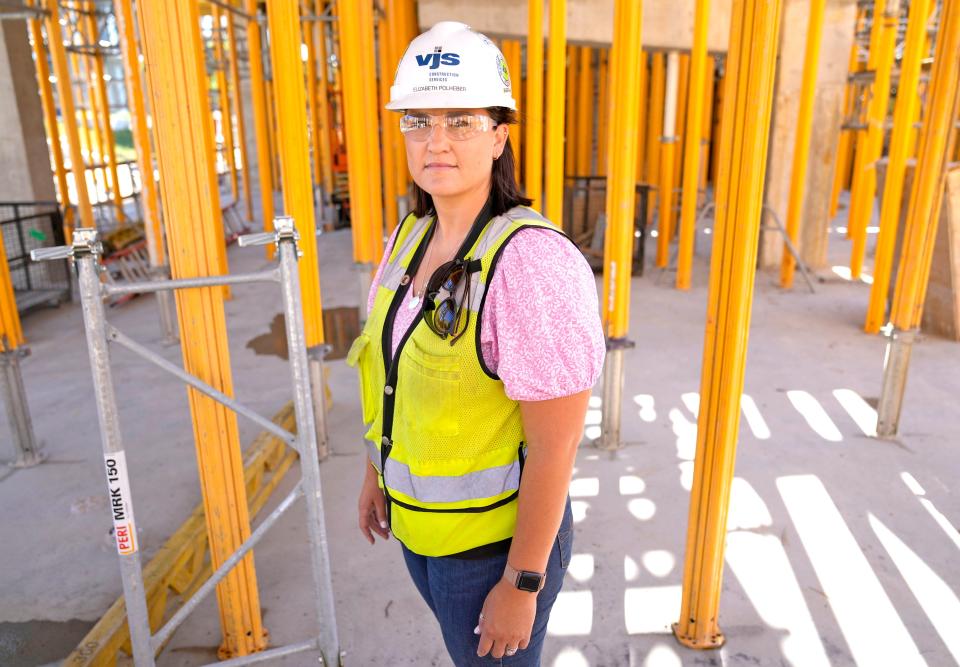Wisconsin building contractors aim to lower suicide rate

In 2020, at a meeting of Wisconsin construction professionals, an idea surfaced that had nothing to do with supply-chain shortages or the outlook for new projects.
It was about mental health and what contractors could do to help curb a surge in construction worker suicides.
The U.S. Centers for Disease Control and Prevention (CDC) had found that men working in construction had one of the highest suicide rates of all industries — about four times higher than the general population.
In response, the U.S. Department of Labor formed a task force of industry partners, unions and educators to raise awareness of the types of stress that could push construction workers into depression and toward suicide.
The uncertainty of seasonal work, demanding schedules, and workplace injuries treated with opioids were some of the stressors, the Department of Labor said.
Bruce Morton, a risk management consultant for the industry, was at the meeting of Wisconsin construction professionals.
“I said, ‘we have a problem, and we have to do something about it,’” he recalled.
Nationwide, the suicide rate for construction workers was five times greater than the rate for all fatal work-related injuries in construction according to a CDC study.
Mental health issues weren't being adequately addressed, a problem in the general population as well, and the pandemic made things even worse.
“We’re all just humans trying to make it through the day,” said Elizabeth Polheber, safety manager for VJS Construction Services, a general contractor based in Pewaukee.
Out of the crisis, the non-profit Wisconsin Construction Wellness Community was formed to offer some assistance.
Contractors including Hunzinger Construction, CJ Schmidt Construction, Stevens Construction, and Grunau Company are represented on the board of directors.
The group’s members have provided mental health training for construction supervisors and many others in the industry. Hundreds of people have attended the online sessions.
“By getting the message out through so many contractors, supervisors, vendors, relatives and training classes, we are making a difference in mental health discussions in the workplace,” said Morton, senior loss control consultant for the Marsh McLennan Agency in Milwaukee.
“The more normal we make these conversations, the more the stigma will lift, and the more people will get the assistance they need. Our goal is that one day it’s just considered normal to talk about mental health in the workplace,” he added.
Morton has seen the toll emotional health issues can take on people struggling with a work-life balance in the construction industry.
“This is a male dominated profession...where men keep stuffing their feelings down deeper and deeper until they can’t control them anymore,” he said.
An emotional problem is not a sign of weakness.
“If you have a mental health issue and are working through it, you are stronger than anyone else I know,” Morton said.
The Boldt Company, an Appleton based construction management firm, formed a suicide awareness and prevention program called the “Gatekeepers".
Boldt has more than 1,500 employees who work on projects throughout the United States. It's in a variety of markets including health care and energy.
"Construction workers are away from their home and family a lot, which increases their risk for suicide," Renee Wolf, a health coach for the company, told the Appleton Post Crescent.
Gatekeepers uses a peer-to-peer strategy, designating trained volunteers to provide help and referrals to co-workers in need.
Since financial instability is one of the factors of high suicide rates among construction workers, many of whom go through periods of unemployment between jobs, most of the recommended resources from Gatekeepers are free. When an employee must be referred to their own personal therapist or doctor, health insurance could pick up some of the cost, but there could be out-of-pocket expenses.
One of the goals for Wisconsin Construction Wellness Community is to have help available regardless of where someone's employed in the construction industry.
"What we're hoping to do," Polheber said, "is make mental health something that's standardized across the industry."
Mental health resource: National Suicide Prevention Lifeline: 1-800-273-8255
Jelissa Burns of the Appleton Post Crescent contributed to this report.
Our subscribers make this reporting possible. Please consider supporting local journalism by subscribing to the Journal Sentinel at jsonline.com/deal.
DOWNLOAD THE APP: Get the latest news, sports and more
This article originally appeared on Milwaukee Journal Sentinel: Wisconsin contractors team up on suicide, mental health issues
